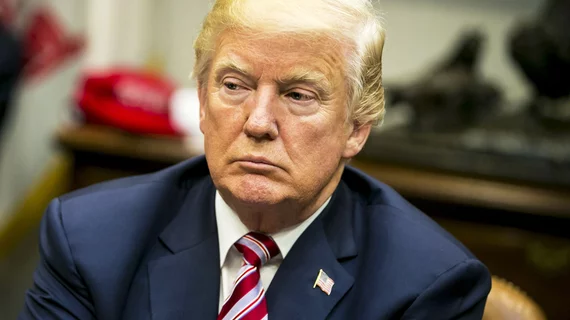President Trump’s budget proposal for 2020, which was issued to Congress on March 11, aims to cut about $5 billion in funding for medical research at the National Institutes of Health. The proposal would negatively impact most institutes at the NIH, including trimming the funding for the National Heart, Lung and Blood Institute by about $486 million.
The NHLBI currently has about $3.49 billion funded for 2019, but that would be cut to $3 billion in 2020 under the proposal, according to The Wall Street Journal.
"While the budget messaging proudly touts increases to certain areas of NIH funding, the proposal completely neglects to support stroke and heart disease research," American Heart Association President Ivor J. Benjamin, MD, said in a statement.
“The American Heart Association has identified that almost half of the population have some form of CVD. After decades of a steady decline in the U.S., CVD deaths are on the rise, which points to the great and urgent need for more research. This budget proposal blatantly ignores the health needs of Americans and the great importance of prevention efforts in reducing heart disease and stroke rates."
The proposed budget also would cut Medicare spending by approximately $845 billion over 10 years and would slash the HHS budget by 12 percent from 2019 to 2020. It also asks for $8.6 billion in new funding for the U.S.-Mexico border wall, and would increase the FDA’s funding by $643 million to $6.14 billion.
In his statement, Benjamin said the AHA supports the increase in funding to the FDA, including the proposal to add a new user fee to e-cigarettes, which have been described as an epidemic threatening the country's youth with nicotine addiction.
According to the WSJ, Congress is unlikely to go along with the cuts to the NIH.
“Members of both parties in the House and Senate have long been strong supporters of the NIH and of medical research in general, so the federal agency almost certainly will get a significant increase when the music stops,” the article stated.

